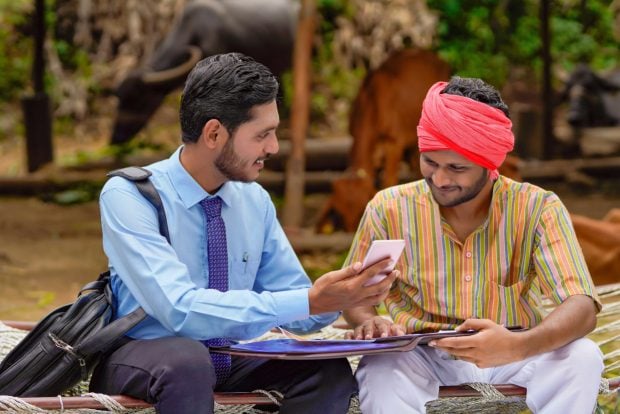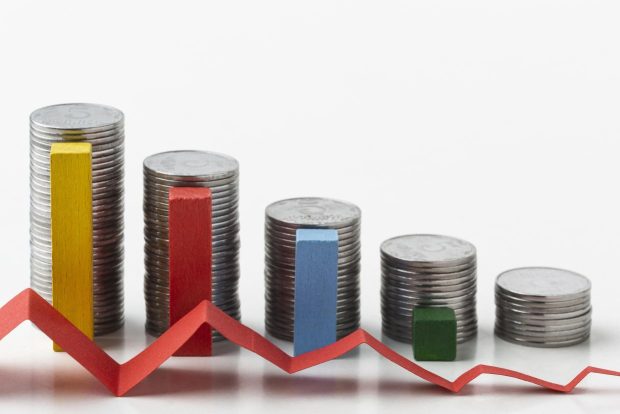‘A global inflection point’: Government finance chiefs set out how their countries are launching the post-COVID economy

The pandemic has done huge damage to growth rates and public finances – but digital technologies, green growth and government interventions offer an economic lifeboat. At the first session of the Global Government Finance Summit, Matt Ross heard treasury chiefs from around the world debate how to restore buoyant growth
“If history is a guide, regions can become stronger and more resilient after crises,” said Wenshan Yeo. “For example, after the [1997] Asian financial crisis, we strengthened our multilateral and international responses.”
As a consequence of actions taken in the wake of that economic tsunami, the Far East emerged relatively unscathed when, a decade later, the 2008 financial crisis hit western economies. And Yeo, the director of economic programmes at Singapore’s Ministry of Finance, believes that governments’ responses to today’s COVID-19 pandemic has the potential to similarly armour their countries against future catastrophes.
“I see good potential in state capacity as a force for good,” she told fellow finance leaders at the 2021 Global Government Finance Summit. Government-enabled “technology and innovation are critical to overcome the common challenges from COVID-19 and future pandemics. And of course, in the sustainability area there’s great potential for a very dramatic shift in the way that economies produce and consume energy and so on.”
Money talks
The summit is an annual gathering of finance department leaders, providing a space within which top national treasury officials can discuss their objectives, their strategies and their worries. “We bring people together, but this is very much your event,” your correspondent – who facilitated the Summit – explained at the outset. “Its strengths lie in its informality; in its unstructured nature; in people’s willingness to speak frankly about their own views and experiences. It’s a place for you to discuss your goals with others in very similar positions, and to hear how others are addressing the challenges you face in common.”
And of course, for nearly two years every finance department in the world has faced a single, overwhelming challenge: how to protect people’s livelihoods and national economies through the pandemic.
Across the developed world, finance departments – nine of which were represented at the Summit – have thrown vast resources into tackling the impacts of COVID-19. “We introduced five budgets in quick succession in 2020, committing nearly 20% of our GDP in economic and social support as well as public health management measures,” Yeo recalled. And the European Commission has also mounted a major stimulus programme, explained Christian Dahlhaus, head of division for the German Recovery and Resilience Plan and Task Force COVID-19 at Germany’s Federal Ministry of Finance.
Big spenders

The commission’s recovery and resilience facility totals over €700bn (US$809bn), with the hardest-hit countries receiving the lion’s share of funding; Germany’s package is worth €25bn (US$29bn), Dahlhaus said. The scheme represents a new approach for the EC, which has previously financed support programmes out of member state contributions. “The European Commission is for the first time raising finance on the markets, and then the individual governments are repaying that over a 30-year period,” he explained. “So the crisis isn’t putting too much of an immediate impact on national budgets.”
In the teeth of the immediate crisis, finance departments funded job protection, business finance and income support schemes – minimising the economic scarring caused by redundancies and insolvencies. In many countries, these programmes could not prevent a growth in income and wealth inequalities. However, Yeo noted that in Singapore, after counting COVID-19 measures for individuals and households and other government taxes and transfers, the ‘Gini coefficient’ inequality metric saw a decline in 2020.
“We made a deliberate attempt to mitigate the uneven impact of the recession, tilting support towards lower-income and vulnerable groups,” she commented. “For us at the Ministry of Finance, the challenge is to work out how this will be sustainable over the longer term without placing undue burdens on current or future generations.”
Mass immigration to the digital world
As states gradually withdraw these crisis support measures, finance departments have been standing up new investment programmes to help restore growth; and here, the discussions revealed striking similarities between the priority areas identified by countries around the world.
One obvious focal point is digital: with governments, businesses and citizens forced online during the pandemic, all three groups need help to develop suitable skills and tools. Nicola Villa, executive vice president for strategic growth at event knowledge partner Mastercard, was on hand to explain the scale of the current economic and social migration into the digital world.

Using its data on financial transactions, Villa explained, Mastercard has been helping governments “to understand what is happening in terms of economic impacts of the pandemic, in near real-time, at the sector or geographical level.” This is, he emphasised, anonymised and aggregated data: “We took a strategic decision, a few years ago, not to monetise individual data as other technology companies do, but to use data to inform programmes and activities being brought forward by our clients.”
Mastercard was, for example, able to tell the German government that the number of small and medium-sized businesses (SMEs) setting up online retail operations during 2020 had risen 38% since 2019; in Brazil, that growth was a dramatic 208%. Around the world, Villa added, three times more SMEs began trading online during 2020 than in 2019; and these businesses increased their turnover by 5% more than their undigitised peers. This information helped shape business support schemes: “The moment you go online, you’re much more prone to fraud,” said Villa – so SMEs needed help to “digitise and stay safe; to pay and get paid in a digital way.”
Digital is a major focus of Germany’s stimulus programme, commented Dahlhaus: half of the measures in the Recovery and Resilience Plan comprise digital projects designed, for example, to promote digitalisation in public administration and health services, while Germany is working with other EU nations on shared projects such as next generation cloud infrastructure. On the other side of the world, Singapore has been working to establish new connections with economic partners and create more international opportunities for its digital businesses, said Yeo, “establishing new digital economy agreements with several countries.”
Nurturing the green shoots of the green economy
Also at the heart of many nations’ revival strategies is the topic of environmental sustainability – and here too, Singapore is trying to build international partnerships. “Carbon markets today are quite complex and fragmented, and Asia will need a voluntary carbon market that’s large, transparent and verifiable,” commented Yeo, “so we’re supporting the development of such a market, including through partnering with the private sector.” Meanwhile, she added, the city-state is “reviewing the level and trajectory of our carbon tax to try to strike a level that can influence investment decisions in a meaningful manner.”
In Europe, sustainability is a top priority for the EU’s Recovery and Resilience Plan: as Dahlhaus explained, 37% of all spending must go on green projects. And the disbursement rules are tight, he added, noting as an example that in the ‘climate friendly mobility’ component of the German plan, only fully electric vehicles may receive funding. Germany is investing in “decarbonisation and hydrogen projects, climate-friendly mobility – transforming the transport sector – and also climate-friendly renovation and construction,” he explained.
The EU’s focus on sustainability comes right from the top, noted Villa: Mastercard’s leaders “have been inspired by people including the EU’s executive vice president for the Green Deal, Frans Timmermans, to see ours as an organisation which could help shift the conversation on environmental sustainability from collective intelligence to individual actions,” he said. Drawing on its network of three billion card-holders, 70 million merchants and 20,000 banks, Mastercard has established a ‘Priceless Planet Coalition’ to raise funds for tree-planting, help customers to assess the carbon footprint of their buying choices, and carry out research into relevant technologies.
Tracking the impact of policies
Many of these technologies will focus on the use of data; for exponential growth in our ability to gather, store, exchange and process digital information is rapidly expanding governments’ ability to understand – and thus influence – the world around us. During previous crises, civil servants couldn’t rapidly gather hard evidence on the unfolding challenges or track the impacts of public sector interventions. But real-time data on financial transactions can reveal “on a week by week basis, the impact of the pandemic in specific sectors,” explained Villa – and money distributed via digital technologies can be tracked as it moves through the economy.

In Northern Ireland, for example, Mastercard is delivering a government scheme to support high streets and businesses. Handing every adult a payment card loaded with £100 (€117) that may only be spent within the local economy, programme managers will be able to track the scheme’s impact in great detail and near real time. This capability provides huge benefits for evidence-based policymaking, Villa noted: “Now you have a direct link between that payment and an outcome, versus making the payments with non-digital solutions and then having to ‘guesstimate’ 18 months after the project whether that programme had an effect.”
Such technologies could help public bodies to focus on measuring what they achieve rather than the activities they undertake, commented Alex Metcalfe, global head of public sector at knowledge partner the Association of Chartered Certified Accountants. The prospect, he said, is that of “moving from a place of governments often thinking about inputs, and saying: ‘Here’s the amount of money we will be spending in X period of time,’ to them saying: ‘Here’s the outcome that we achieved’.”
The delicate task of unwinding COVID support
This kind of data could prove equally useful as governments seek to wind down their pandemic support measures, commented Yeo. When the pandemic hit, “governments stepped in, in quite a muscular way,” she said; but most are now “transiting to bringing down levels of spending.” This creates risks, commented Villa: pandemic business support and job protection schemes have meant that in some countries “companies that would normally have gone bankrupt have been kept in the economy. But what’s going to happen when those subsidies stop?”
In Canada, commented Christine Walker – assistant comptroller general at the Treasury Board of Canada Secretariat – the opening up of the economy has revealed another challenge in the management of pandemic support programmes. After an extended period unable to work and kept afloat by government payments, many workers are reluctant to return to their former roles: “Small businesses are closing or shortening business hours, because they don’t have the people,” she said. The cause, she suggested, is “partially [continuing] subsidies, and partially that people have moved onto other jobs.”
Since COVID-19 spread across the world, national governments have ploughed huge resources into protecting their citizens’ health, wellbeing and livelihoods – with varying degrees of success. Unlike many other countries, which experienced large waves during 2021, Singapore kept restrictions in place until vaccinations could be rolled out widely, resulting in one of the lowest COVID-19 death rates.
Now, commented Yeo, “we are trying to avoid the extremes of zero tolerance or laissez faire, taking a risk management approach that neither opens up a resurgence of cases, nor severely affects livelihoods with little or no gain in lives saved.” While trying to slow the rate of increase of transmission – and thus protect the healthcare system – the government is now gradually lifting restrictions. With job losses and insolvencies since March 2020 minimised by the city-state’s support programmes, the economy is responding well.
Typically, the city-state is already preparing for the next challenge. “It’s only a matter of time before the next pandemic,” said Yeo, “and to address that, we have to go beyond national spending. We’ll need to look at new multilateral systems; better early warning systems; better systems of vaccine manufacturing and distribution. Otherwise, we’ll be back where we are today: tackling a crisis.”
As Yeo had pointed out, countries can emerge more resilient from a crisis – or they can stumble, injured and unprepared, into the next. “Depending on how we collectively play this out, we could have either a much more fragmented and fragile and volatile world; or one where economies build back better, and we can even perhaps look at a productivity boom from greater adoption of green and other innovative technologies,” she concluded. “I think we’re at a global inflection point.”
The 2021 Global Government Finance Summit was held online in late October 2021. Covering the discussion on ‘The big picture: managing economic growth and the public finances’, this is the first of four reports on the Summit’s sessions. The second report explored how to fix governments’ broken financial systems; the third examined the spiralling demands of crisis response; and the fourth covered the roles and development of finance leaders. To ensure that people can speak freely at the event, we check quotes with the speakers before publication.
- Global Government Finance Summit 2021 attendees
- Noureddine Bensouda, General Treasurer of the Kingdom, Morocco
- Gil S. Beltran, Undersecretary, Department of Finance, Philippines
- Pablo de Ramón-Laca, Director General – Treasury and Financial Policy, General Secretariat of the Treasury and International Finance (Spanish Treasury), Ministry of Economic Affairs and Digital Transformation, Spain
- Peter Lim, Director – Fiscal Policy, Ministry of Finance, Singapore
- Leena Mörttinen, Permanent Under-Secretary, International and Financial Markets Affairs, Finland
- Markus Sovala, Director General, Statistics Finland, Finland
- Christine Walker, Assistant Comptroller General – Financial Management Transformation, Treasury Board of Canada Secretariat, Canada
- Christian Dahlhaus, Head of Division, German Recovery and Resilience Plan/ Task Force Covid-19, Federal Ministry of Finance, Germany
- Wenshan YEO, Director – Economic Programmes, Ministry of Finance, Singapore
- João Boa Francisco Quipipa, Economist and Government Advisor, Angola
- Elaine Boyd, Associate Director of Audit Quality and Appointments, Audit Scotland, Scotland
- Maggie McGhee, Executive Director – Governance, ACCA
- Alex Metcalfe, Global Head of Public Sector, ACCA
- Jennifer Duncan, Vice-President Government Innovation, Mastercard
- Dr. Shefiu Abiodun Muritala, Accountant General – Lagos State, Nigeria
- Haji Ibsa Gendo, Director General, Ministry of Finance and Economic Development, Ethiopia
























Good morning
My name is Adebayo Vunge and am the Director of Comunication In the Ministry of Finance of Anhola.
Please, I’d like to be In touch with organisation to understand how we could participate in global government forum.
Best regards